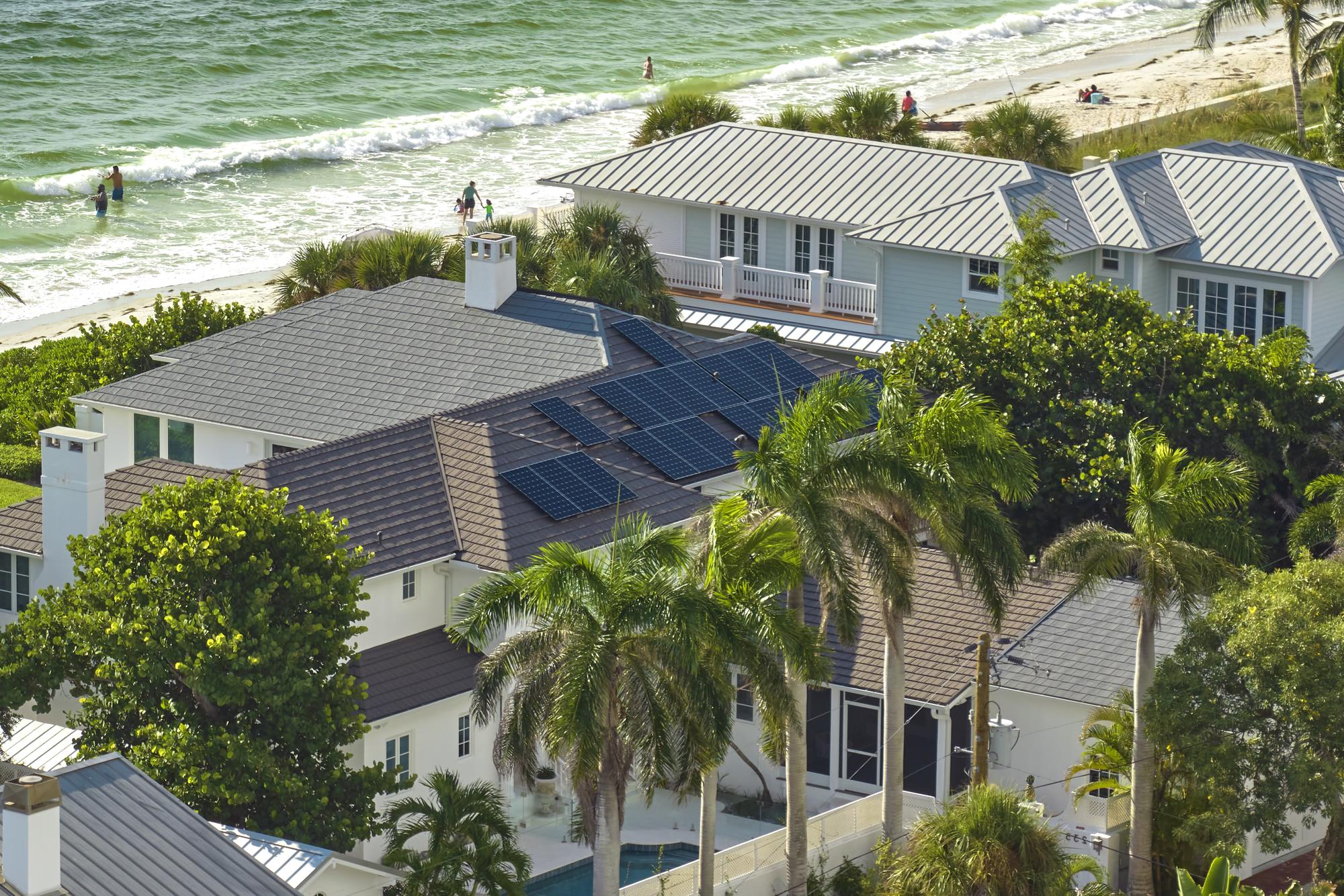Yes, you absolutely can install solar panels on your roof in Florida! In fact, Florida is one of the best states for solar energy due to its abundant sunshine, favorable policies, and strong incentives for renewable energy adoption. If you’re considering installing solar panels on your home, there are a few key factors to keep in mind to ensure a successful and efficient installation.
Why Florida Is Ideal for Solar Energy
Known as the “Sunshine State,” Florida offers abundant sunlight throughout the year, making it a prime location for generating solar energy. Solar panels in Florida can produce significant amounts of electricity, reducing or even eliminating your electricity bill, lowering your carbon footprint, and increasing the overall value of your home.
Steps to Take Before Installing Solar Panels in Flori
While installing solar panels is a great investment, proper planning and preparation are crucial to maximize the benefits. Here’s what you need to know:
-
Assess the Condition of Your Roof
Before installing solar panels, it’s important to ensure your roof is in good condition. Solar panels are a long-term investment, typically lasting 25 to 30 years, so it’s best to address any roof repairs or replacements before installation. A roof inspection by a licensed professional can help identify issues like:
– Worn or missing shingles
– Structural weaknesses or sagging areas
– Leaks or water damage
Key Tip: If your roof is nearing the end of its lifespan, consider replacing it before installing solar panels. This prevents the need to remove and reinstall the panels in the near future, saving you time and money.
-
Check for Structural Reinforcements
Not all roofs are immediately ready to support the weight of solar panels. Your roof’s structure must be capable of handling the additional load. A professional assessment can determine whether structural reinforcements are needed to safely support the panels and withstand wind loads, especially during hurricane season.
Roof Types and Suitability for Solar:
– Shingle roofs are among the most common and are generally compatible with solar panels.
– Tile and metal roofs can also accommodate solar panels, though installation may require specialized mounting equipment.
– Flat roofs may require angled mounting systems to ensure optimal exposure to sunlight.
-
Determine Sunlight Exposure and Orientation
For maximum energy generation, solar panels should be installed in a location that receives ample direct sunlight throughout the day. South-facing roofs typically provide the best exposure in Florida, though east- or west-facing roofs can still generate significant energy.
– Assess shading from trees, buildings, or other obstructions. Even partial shading can reduce your system’s efficiency.
– Your solar installer may use tools like solar pathfinders to evaluate sunlight exposure and identify optimal panel placement.
-
Research Permits and Regulations
In Florida, installing solar panels may require permits and compliance with local regulations. Your solar installer can typically handle the permitting process, which includes obtaining approval from your local building department and meeting state and local building codes.
Homeowners Associations (HOAs) and Solar Panels:
Florida law protects homeowners’ rights to install solar panels, even if your HOA has restrictions on other exterior modifications. However, it’s wise to communicate with your HOA in advance to ensure a smooth process.
-
Understand Incentives and Rebates
Florida offers a range of incentives to make solar more affordable:
– Federal Solar Investment Tax Credit (ITC): Homeowners can claim a percentage of their solar installation costs as a tax credit, significantly lowering upfront expenses.
– Net Metering: This program allows you to sell excess energy generated by your solar panels back to the grid, reducing your electricity bill and maximizing your savings.
– Property Tax Exemption: Solar installations in Florida are exempt from property tax increases, even though they increase your home’s value.
– Sales Tax Exemption: Florida provides a sales tax exemption on solar panel purchases, reducing the cost of your investment.
Be sure to explore available incentives and speak with a solar provider to understand how they can reduce the cost of your system.
-
Choose a Reputable Solar Installer
Selecting an experienced and reputable solar installer is crucial for a successful project. Look for companies with:
– Strong customer reviews and a proven track record
– Proper licensing and insurance
– Warranties on both labor and equipment
– Knowledge of Florida-specific building codes and permitting processes
A good solar installer will provide a detailed site assessment, design a system tailored to your energy needs, and ensure all necessary permits are secured.
Benefits of Installing Solar Panels in Florida
- Lower Energy Bills: Solar panels can significantly reduce or eliminate your electricity bill, providing long-term savings.
- Environmental Impact: Generating clean, renewable energy helps reduce your carbon footprint and supports environmental sustainability.
- Increased Property Value: Homes with solar panels often have higher resale values and attract environmentally-conscious buyers.
- Hurricane Resilience: Solar panels are built to withstand high winds, and when properly installed, they can remain intact even during strong storms.
Key Takeaway: Florida Is Solar-Friendly, But Preparation Is Key
Yes, you can install solar panels on your roof in Florida, and it’s a great investment given the state’s abundant sunshine and supportive policies. Start by ensuring your roof is in good condition, check for structural reinforcements, and work with a trusted installer to maximize your system’s efficiency. By taking these steps, you can harness the power of the sun, save on energy costs, and contribute to a cleaner, greener future.
If you’re ready to take the next step, reach out to a local solar provider for a free consultation and find out how solar can transform your home’s energy usage!

